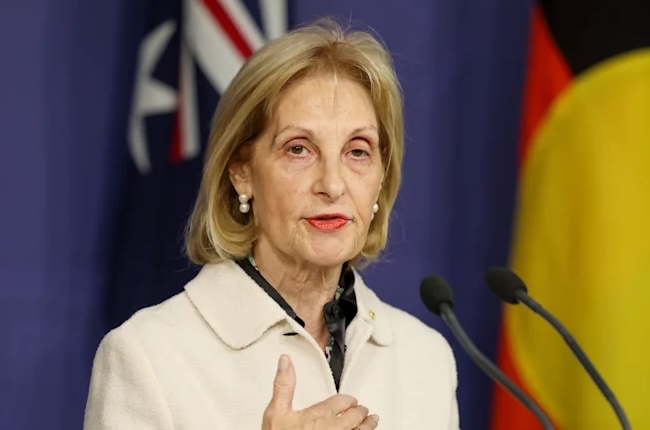Dr Evan Jones continues his analysis of corrupt self-regulation in the banking sector, demonstrating the critical need for a Royal Commission.
Part 2: The temperature finally heats up
FAST FORWARD 20 years (albeit no fast forward for victims).
The Senate Economics Committee inquiry into ASIC was established following ASIC’s scandalous inaction over the Commonwealth Bank's (CBA) subsidiary Commonwealth Financial Planning's (CFPL) corrupt appropriation of investor assets.
The June 2014 report recommended, inter alia:
12.28 The committee recommends that the government establish an independent inquiry, possibly in the form of a judicial inquiry or Royal Commission, to:
- thoroughly examine the actions of the Commonwealth Bank of Australia (CBA) in relation to the misconduct of advisers and planners within the CBA's financial planning businesses and the allegations of a cover up;
The recommendation was reported at the time, because significant, by the indomitable Fairfax journalist Adele Ferguson. It is instructive that Senate committees are typically chaired by a member of the opposition, thus the tendency to stronger recommendations. In the ASIC inquiry, the chair was Labor Senator Mark Bishop. In the current context, Bishop recently reminded us of that earlier recommendation.
A potentially negative response from the Abbott Government was implicitly flagged when the Senate Committee’s senior Government member, David Bushby, wrote a minority dissenting statement appended to the ASIC Inquiry report, which included:
1.35 A Royal Commission is primarily intended to undertake a fact-finding mission, however, the issues proposed to be examined here have already been extensively reviewed—including by ASIC, the CBA, the police and the committee.
1.36 Although a Royal Commission might recommend improved practices, existing institutions have already been at work exploring and driving wide-scale reform in the financial sector.
These claims are rubbish of course. The CBA is unrepentant, ditto ASIC, and the police are nowhere to be seen.
But Labor has pulled the same stunt. The same Senate Committee’s 2012 Post-GFC Banking inquiry occurred when Labor was in office and Bushby was in the chair. The report was comprehensively useless; even so, the Labor senators (Bishop himself and the bolshie Doug Cameron) wrote a dissenting statement, claiming that with ongoing reforms the (Labor) Government had the matter in hand.
Also rubbish. So it’s been politicians running for cover to date. But at least the Bishop-led ASIC inquiry did let the Royal Commission genie out of the bottle.
Mike Carlton picked up the baton in July 2014:
But what's really needed is a royal commission into the big four banks, the finance industry at large, and the abject failure of the supposed watchdog, the Australian Securities and Investments Commission, to protect investors. An explosive report [into ASIC] by a Senate committee called for that very thing last week, but the Abbott Government brushed it off with the excuse that there's already an inquiry under way.
And indeed there is. But it's headed by David Murray, who was the CBA's chief executive for 13 years until 2005, when the gouging had already begun. That's a bit like asking the fox to investigate the blood and feathers in the henhouse.
The expected negative stance from the Government came in October, in its formal response to the Senate Committee’s report.
The Coalition Government has refused to hold a royal commission into the Commonwealth Bank of Australia as part of its response to a landmark Senate inquiry.
But comes 2015, the Coalition Government is digging in with the "No Royal Commission" flag.
Strutting his stuff was then Assistant Treasurer, Josh Frydenburg (only recently replacing in that post the in-trouble Arthur Sinodinos). Thus in February, amid revelations of National Australia Bank (NAB) misconduct, Frydenburg said:
"We have no plans for a royal commission ... As you know a number of these concerns date back to a time when Labor was in office, from 2009 onwards. ASIC is investigating, I've spoken to ASIC, they've told me it's a high priority for them."
Note that at the time of the Frydenberg statement, Opposition Leader Bill Shorten had said Labor supported a Royal Commission.
Hmm... Labor begins the hot and cold dance.
However, National Senator John Williams was consistently demurring from the Party line (even though his own National Party was in hiding), popping up intermittently to claim that a Royal Commission was appropriate and overdue.
With the disclosure that the NAB was also involved in “wealth management” rorts, in February 2015 the Sydney Morning Herald reported:
[Williams] ... submitted draft terms of reference for a Royal Commission into white collar crime to Treasurer Joe Hockey's office.
Senator John Williams said a Royal Commission should include the banks, liquidators, financial planners and financial products such as managed investment schemes and valuers. "I will be pursuing it with my colleagues when I get back to Canberra this week," he said.
It is relevant that Williams’ family was a foreign currency loan victim of the CBA. Thus, Williams provides a rare link between the 1980s and the current era, during which bank corruption has never gone away in spite of the blinkers of the political class.
Come June 2015, the disclosure that IOOF (a one-time respectable fund) was now in on the act, led Greens Senator Peter Whish-Wilson to foreshadow a motion for a Royal Commission into financial sector misconduct.
He said that the Greens Party:
"... notes the allegations that financial planners at the Commonwealth Bank of Australia, National Australia Bank, ANZ Bank, Macquarie Bank and, most recently, IOOF having engaged in unethical and/or unlawful activity."
Curiously, Labor, via the Shadow Treasurer Chris Bowen, was now not interested.
In particular:
'Representatives for Labor senator Sam Dastyari – who has been vocal in his calls for a Royal Commission – declined to comment, referring inquiries to Mr Bowen's office.'
Whish-Wilson’s motion of 23 June was defeated the next day because of lack of Labor support. Williams crossed the floor:
"I could have chosen to chicken out and abstained from the vote but I would have made a hypocrite of myself. I've been calling for a Royal Commission into this stuff for five years and this is one of the things I'm most passionate about.''
Fairfax editorial, always unpredictable, came out in favour of a Royal Commission in July 2015 — in effect supporting the persistent disclosures of its journalist team.
The Joint Parliamentary Committee (JPC) Inquiry into the Impairment of Customer Loans was holding its public hearings in late 2015 and early 2016. Peculiarly, this Inquiry and the hearings were receiving minimal exposure in the media — save for yours truly on this site, here and here.
Barrister Peter King (one time Liberal MP for Wentworth, until unceremoniously deposed by its present incumbent) appeared at the JPC hearing on 16 February 2016. King has been acting for defaulted bank borrowers, mostly farmers ending up with ANZ facilities after ANZ acquired Landmark from the AWB in 2010. In this context, he called for a Royal Commission.
The Sydney Morning Herald reported:
Banks have put some farmers into default for falling only $10 behind on their loans or missing a payment by just a couple of days, a parliamentary hearing was told on Tuesday.
Sydney barrister Peter King, who has represented more than 50 farming customers in disputes with banks, cited these instances of "technical default" as part of a wider pattern of poor treatment of farmers by banks, which he believes should be investigated through a Royal Commission.
Then in March came the joint Fairfax/ABC Four Corners exposé of the CBA’s CommInsure rort. This shocking disclosure led the Australian Shareholders Association to call for a Royal Commission into the entire insurance sector.
Thus we get these intermittent “call to arms” over a 21-month period for a Royal Commission into various domains of the finance sector. Nothing happens but rallying cries. Then the dam bursts in April 2016.
Editors Note: Former business editor for the Sydney Morning Herald Michael West spoke to IA about the need for a Royal Commission.
West, who reported frequently and took no prisoners in his coverage of big business corruption, to us:
'There is not much point broadening ASIC’s powers as they don’t use the powers they already have. The finance sector needs to face independent judicial oversight because the executive branch of government has failed.'
On his recent forced redundancy from Fairfax, West commented:
'If there were a School of Editors, Fairfax editorial management would be in the Remedial Class with their noses in the corner — except of course when it comes to clickbait follow-up stories on what happened on the telly the evening before. In the discipline of clickbait they are Professors Emeriti.'
Dr Evan Jones is a retired political economist. He has been writing on bank malpractice against small business and the family farmer for over a decade. Read Part Three tomorrow.
For a more in depth analysis of the latest in the series of parliamentary inquiries into system bank corruption, read Dr Evan Jones' 6-part series:

This work is licensed under a Creative Commons Attribution-NonCommercial-NoDerivs 3.0 Australia License
Monthly Donation
Single Donation
Investigate Australia. Subscribe to IA for just $5.









